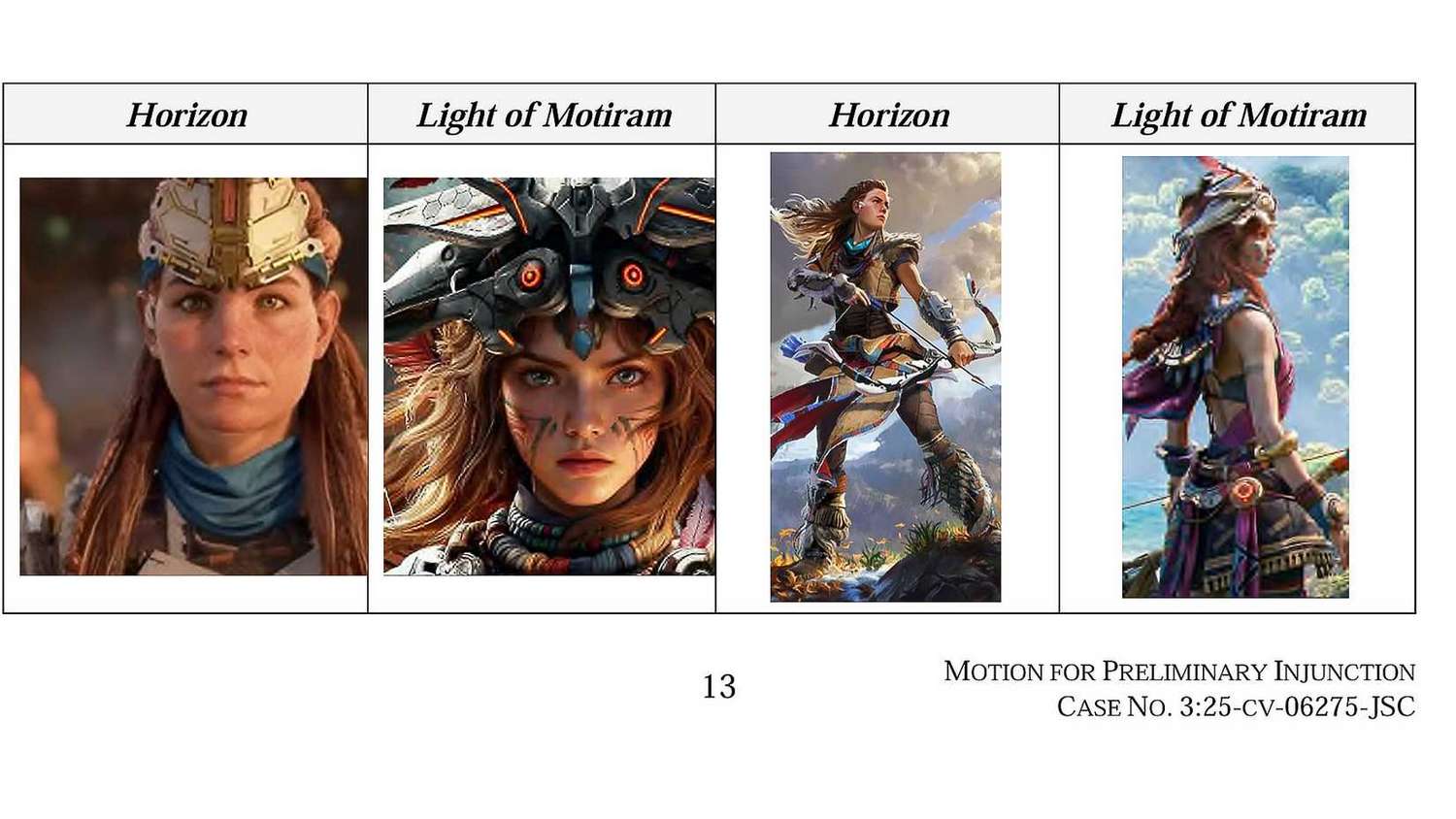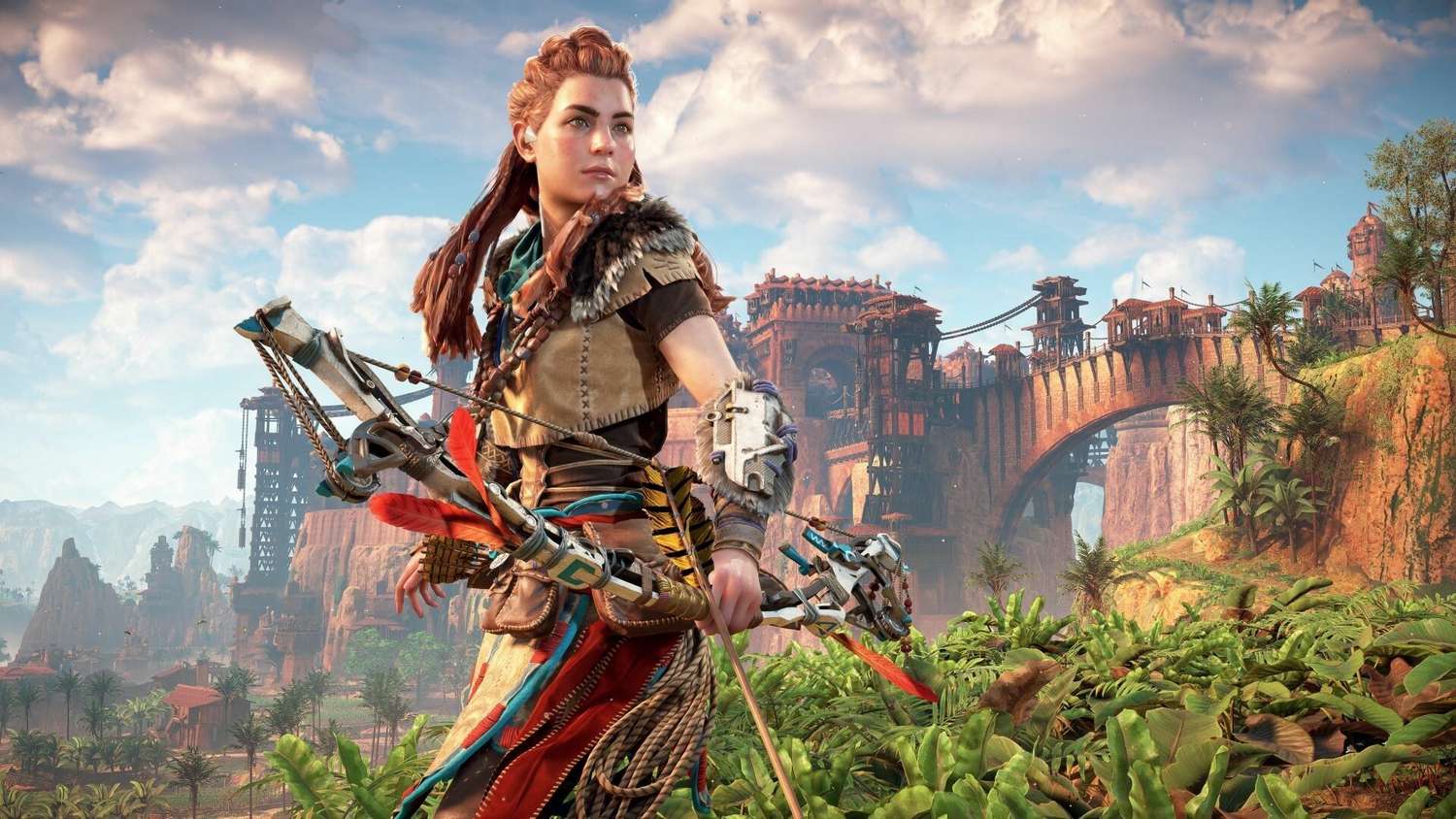Sony Escalates Legal Battle: Injunction Sought Against Tencent’s ‘Light of Motiram’ Over Alleged Horizon IP Infringement
Popular Now
 The Escalation: Sony Pushes for Preliminary Injunction Against Alleged ‘Horizon’ Clone
The Escalation: Sony Pushes for Preliminary Injunction Against Alleged ‘Horizon’ Clone
San Francisco, CA — The high-stakes legal confrontation between gaming titans Sony Interactive Entertainment (SIE) and Tencent Holdings has reached a new and critical juncture. SIE, the developer and publisher behind the globally successful Horizon franchise, has filed a motion for a preliminary injunction in a U.S. District Court, a significant escalation in its ongoing Intellectual Property Lawsuit against the Chinese technology and entertainment behemoth. The target of this legal maneuver is Tencent’s upcoming open-world title, Light of Motiram, which Sony has repeatedly labeled a “slavish clone” of its own Horizon Zero Dawn and Horizon Forbidden West games.
This aggressive step, filed in the Northern District of California, aims to immediately halt promotional activities and bar the use of specific, allegedly infringing elements within Light of Motiram until the full copyright infringement case can be heard. Sony’s filing seeks to prevent what it describes as “irreparable harm” to its flagship franchise, arguing that continued public promotion of the Tencent title is actively eroding the distinctiveness and value of the Horizon brand.
The Core of the Dispute: Character, Visuals, and Musical IP
At the heart of the injunction request are several distinct elements that Sony alleges constitute clear and pervasive copying. The most prominent is the protagonist of Light of Motiram, who critics, media, and fans alike have noted bears an uncanny resemblance to Horizon’s lead character, Aloy.
Sony’s Injunction Focuses on Key Infringing Elements:
- A main character described as a “fierce tribal warrior huntress characterized by fiery red hair and a similar physical build and costuming” to Aloy.
- Specific visual styles, including the use of post-apocalyptic settings where tribal aesthetics meet advanced mechanical beasts.
- Musical compositions, with Sony highlighting a melody in Light of Motiram’s promotional trailers that it claims is too similar to two specific, copyrighted tracks from the Horizon Zero Dawn original soundtrack.
- Narrative themes and world-building that allegedly mirror the core established lore of the Horizon universe.
The motion for a preliminary injunction is a powerful legal tool, requiring Sony to demonstrate both a likelihood of success on the merits of its Intellectual Property Lawsuit and that it faces imminent and irreparable harm if the court does not act swiftly. The company contends that the public confusion already generated by promotional materials—with countless social media posts and media articles referring to Light of Motiram as a Horizon knock-off—proves that the “damage is done, and it continues.”
Tencent’s Defense: Genre Conventions and Timeline Delay
In response to the escalating lawsuit, Tencent Holdings has vigorously contested Sony’s claims. Previously, the Chinese mega-corporation filed a motion to dismiss the original complaint, arguing that the similarities cited by Sony are merely “time-honored tropes” and “ubiquitous genre ingredients” found across many open-world AAA Video Game Development titles, including The Legend of Zelda, Far Cry, and even the Horizon series itself. Tencent maintains that Sony is attempting to secure an “impermissible monopoly” on standard genre conventions.
Furthermore, Tencent’s opposition to the preliminary injunction leverages the game’s scheduled release timeline, currently slated for the fourth quarter of 2027. They argue that a game so far from release cannot possibly demonstrate the ‘immediate threatened injury’ necessary for an emergency injunction. This move suggests a strategic long game, challenging the immediacy of Sony’s concerns despite the ongoing promotional campaign.
The situation is further complicated by the corporate structure, with Sony claiming that Tencent is “playing a shell game” by obscuring which subsidiaries are ultimately responsible for the game’s development and publication, an attempt to shield itself from liability.
Implications for the Global Digital Content Protection Market
This legal showdown between two of the largest entities in the Digital Entertainment Market is being closely watched across the Game Industry Legal Action landscape. The outcome has profound implications that extend far beyond a single video game. Should Sony succeed in obtaining the injunction, it would set a powerful precedent for the Digital Content Protection of distinct character designs and specific world-building IP elements, particularly in the international market where IP enforcement can be notoriously complex.
Conversely, a ruling against Sony could embolden competitors to push the boundaries of artistic inspiration versus intellectual property theft, potentially transforming the rules of the AAA Video Game Development sector. The case highlights the ongoing tension between utilizing established, popular formulas and the need to protect unique, proprietary creative assets.
The court is expected to hear arguments on the motion for a preliminary injunction before the end of 2025, an outcome that will undoubtedly provide a significant indication of the legal trajectory of this landmark Intellectual Property Lawsuit.

